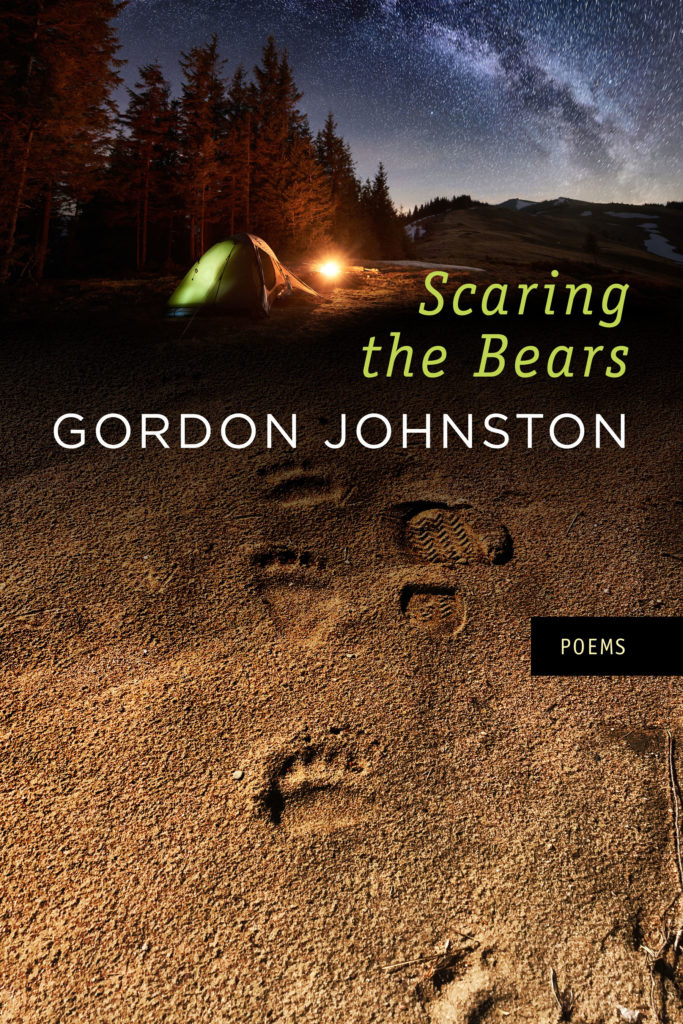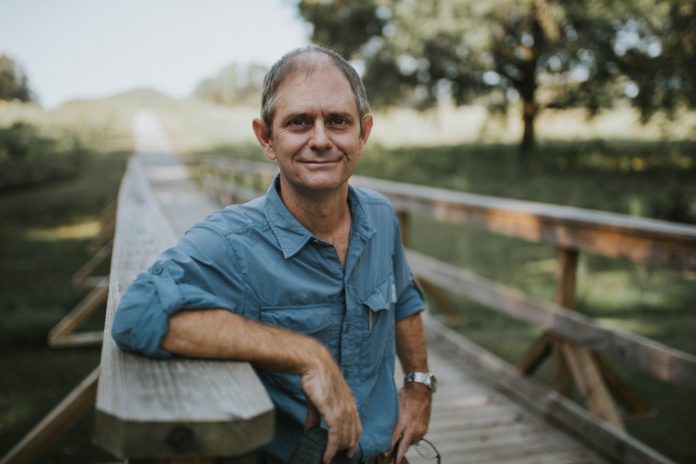Mercer University’s College of Liberal Arts and Sciences encourages immersion in the humanities — not just studying the human aspects of the world around us but participating in them, as well.
Dr. Gordon Johnston, professor of English, is a prime example, with two books of poems coming out in early 2021, each a product of his love of and experiences with nature and the ruggedness of the wilderness and the open air.
“These books have different subjects, but both of them build on the affirmation I draw from the outdoors,” Dr. Johnston said. “I’m a backpacker, a hiker and a naturalist. I love to canoe and kayak.”
The two new releases are Dr. Johnston’s most substantial books of poetry, following a prose guide to Ocmulgee Mounds National Historical Park he co-authored in 2017 and a short chapbook of poems he authored 10 years earlier. A chapbook is a book that is under 45 pages and relatively inexpensive.

“I have one chapbook out already, called ‘Gravity’s Light Grip,’ published in 2007,” he said. “It was hand-published on a letterpress, so it was a very limited edition. I also wrote field notes and collected oral Creek and Cherokee stories for the book I co-wrote with Matt Jennings about Ocmulgee Mounds National Historical Park.”
The first release of the new books is titled “Scaring the Bears,” Dr. Johnston’s first full-length collection of poems. The collection centers on his relationship with the natural world, though the poems also find a way to weave in stories about wider life experiences. The book is now available for purchase from Mercer University Press.
“There are poems going back to the late ’90s. They’re about moments of recognition, about sort of odd things that I’ve seen, overheard and experienced,” Dr. Johnston said. “That kind of thing — memories that have taken on more meaning over time.”
Dr. Johnston will also publish “Durable Goods,” a chapbook on Feb. 19 with Finishing Line Press. The title is a reference to human yearning for lasting goodness.
“The economic term ‘durable good’ is a measure of how the economy is doing, how many appliances are being sold, but that’s not what these poems are about,” Dr. Johnston said. “It’s about wishing there was a durable good in the world that isn’t simply materialistic — wishing for a good to offset all this awful news we keep getting.”

Dr. Johnston’s passion for writing began at a young age with trying to write fantasy. He said he didn’t think much of poetry. Then, in college, he read poets like Langston Hughes, Dylan Thomas and Mercer alumnus David Bottoms.
“Until I read these poets, I always thought poetry felt too precious and high-flown,” Dr. Johnston said. “When I got to college, I read seriously, and I came to love the way a poem said as much as possible in as few words as possible.”
When Dr. Johnston arrived at Mercer in 1996, he was initially supposed to teach for one year only. However, the English Department was developing a creative writing track and needed someone for a tenure track position.
“Students were very interested in writing fiction and poetry, and other schools around the region and the state had more developed creative writing offerings than Mercer did,” Dr. Johnston said. “And around that time the English Department was given an endowment for a distinguished residency in writing.
“Sandra Flowers was the other writer here at the time. She and I got together and built it. I handled the poetry side of it, while Sandra handled the fiction writing side of it.”
Together they shaped a sequence of classes that ended with a senior-level course taught by a different nationally prominent guest writer each year — the Ferrol A. Sams Jr. Distinguished Writer in Residence. The endowment-funded residency was named after a Mercer alumnus who was a beloved physician and well-known Southern writer, author of “The Whisper of the River,” among other novels.
In the last several years, the creative writing program has grown into a full-fledged major and minor, with students regularly publishing poems, fiction and nonfiction even before they graduate.
“With the addition of Dr. James May and Chelsea Rathburn to our writing faculty in the last two years, I think we have the best program in Georgia — one of the best in the Southeast,” Dr. Johnston said. “Dr. May is the new director, and he is taking us in an exciting direction.”
Dr. Johnston credits Mercer’s creative writing program with assisting him in writing his books.
“I made sure I wrote every day because that’s what I was asking my students to do,” he said. “I couldn’t be a hypocrite in front of them. And poets teaching here helped my work along. Judson Mitcham and Anya Silver and I read and edited our poems together for years.”










